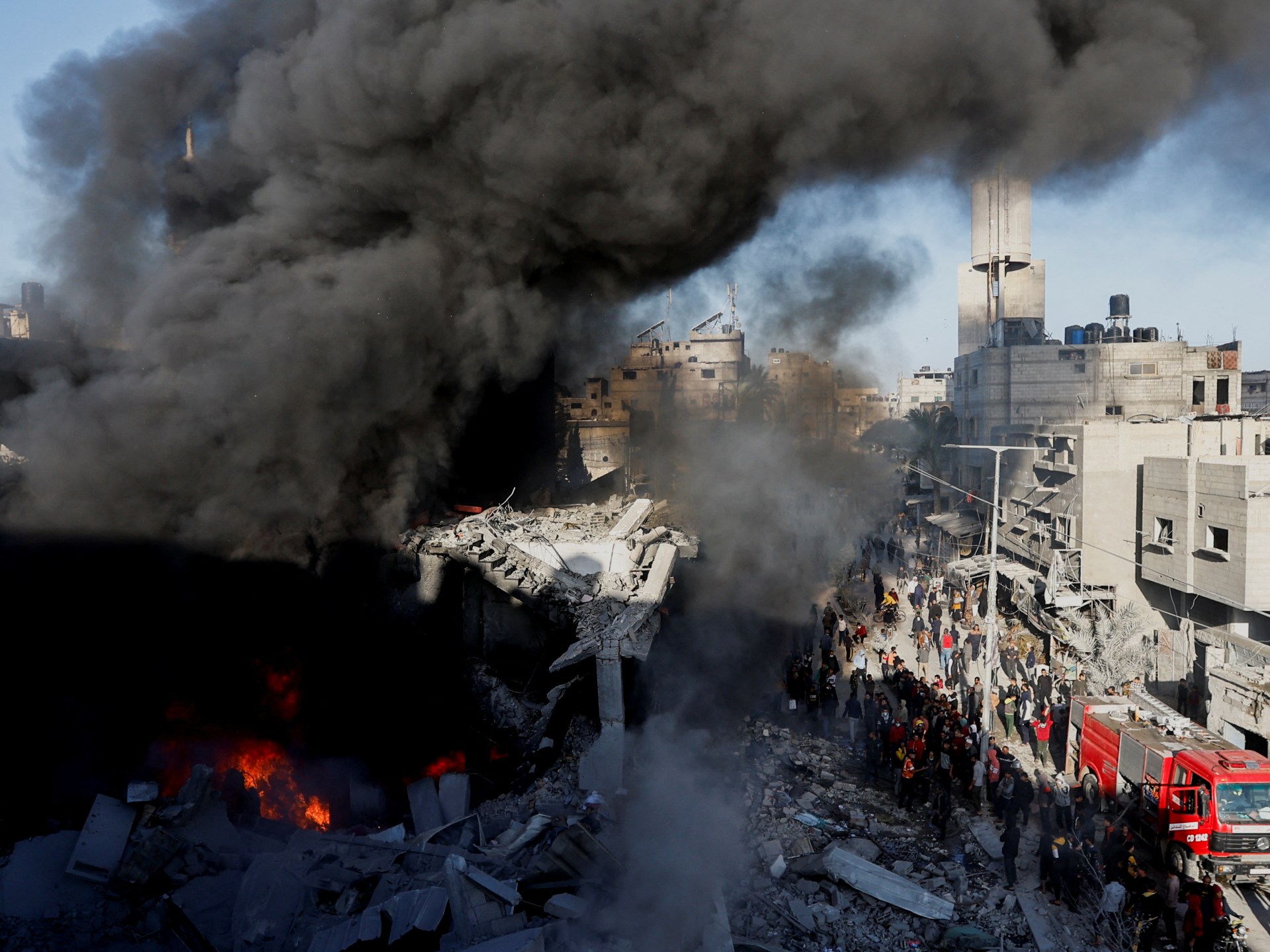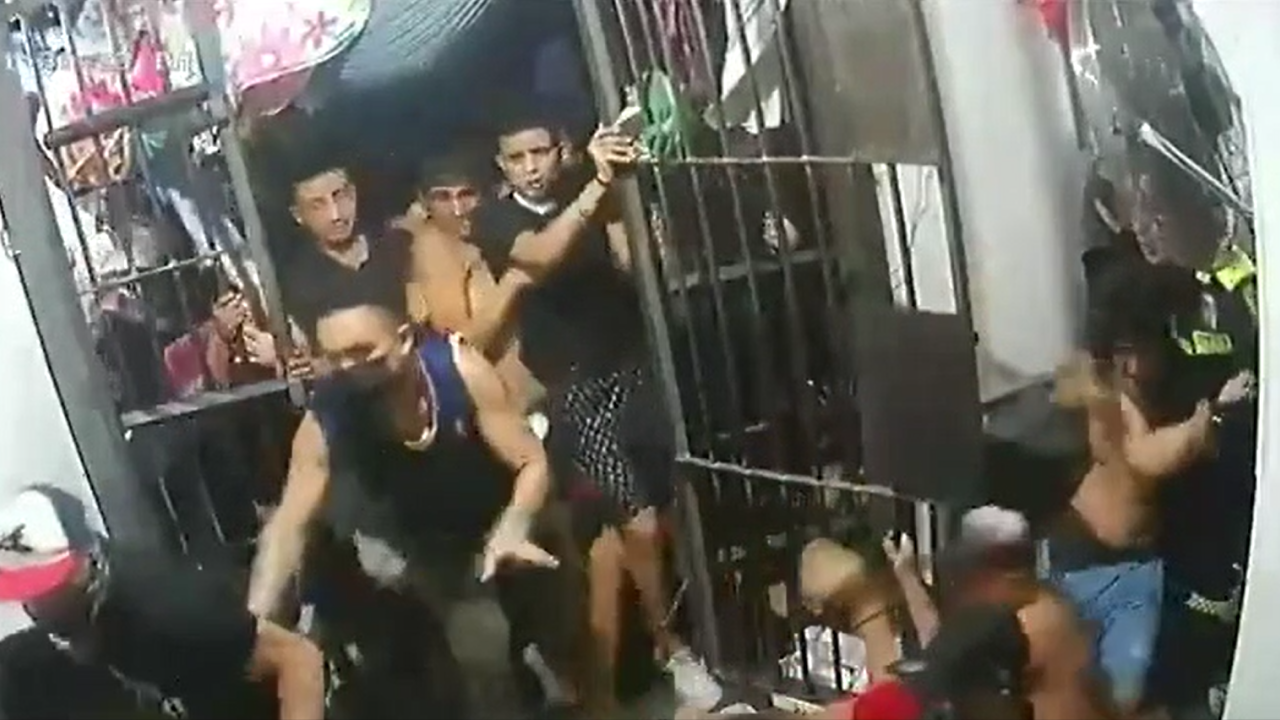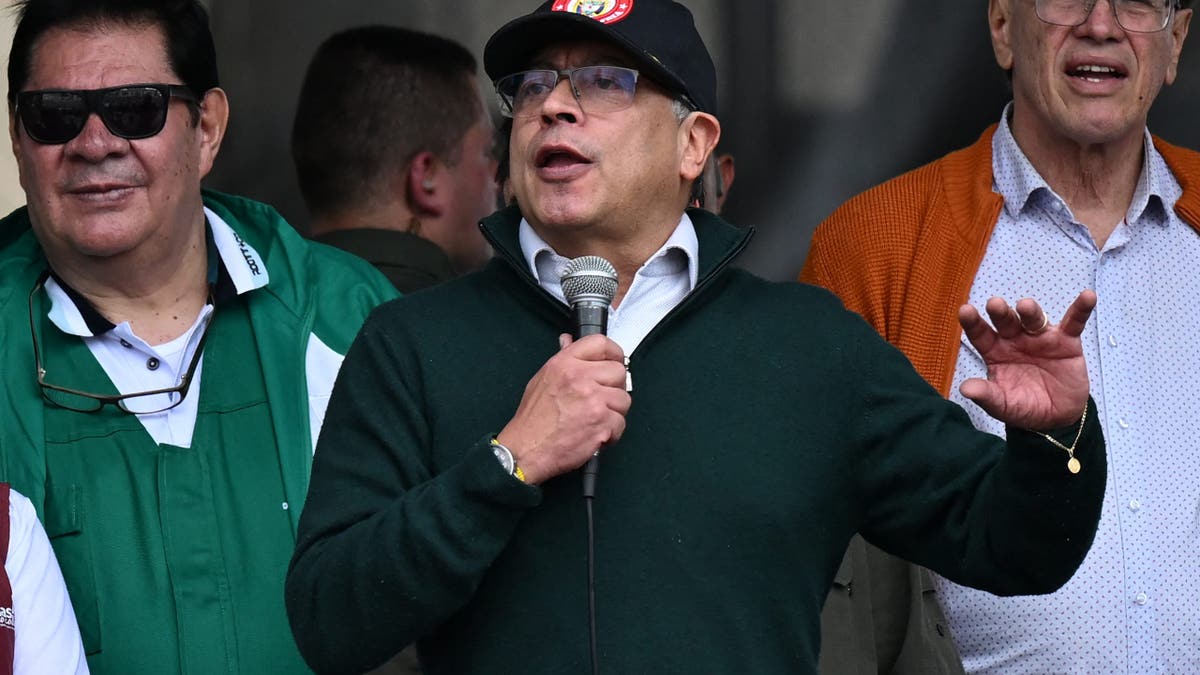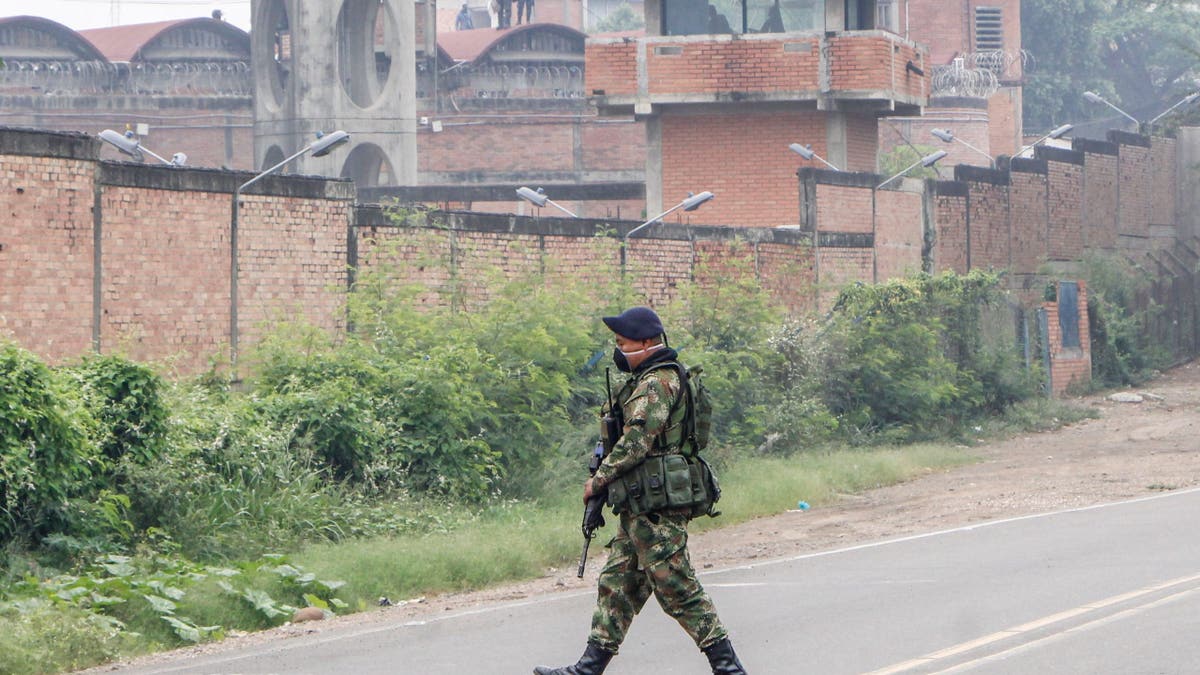World
Demands for Canada to stop supplying weapons to Israel grow louder

Montreal, Canada – Human rights advocates are accusing Canadian Prime Minister Justin Trudeau’s government of misleading the public over weapons sales to Israel, which have come under greater scrutiny amid the deadly Israeli bombardment of Gaza.
At issue is legislation that prohibits the government from exporting military equipment to foreign actors if there is a risk it can be used in human rights abuses.
But regulatory loopholes, combined with a lack of clarity over what Canada sends to Israel, have complicated efforts to end the transfers.
Dozens of Canadian civil society groups this month urged Trudeau to end arms exports to Israel, arguing they violate Canadian and international law because the weapons could be used in the Gaza Strip.
But in the face of mounting pressure since Israel’s war on Gaza began on October 7, Canada’s foreign affairs ministry has tried to downplay the state’s role in helping Israel build its arsenal.
“Global Affairs Canada can confirm that Canada has not received any requests, and therefore not issued any permits, for full weapon systems for major conventional arms or light weapons to Israel for over 30 years,” the department told Al Jazeera in an email on Friday.
“The permits which have been granted since October 7, 2023, are for the export of non-lethal equipment.”
But advocates say this misrepresents the total volume of Canada’s military exports to Israel, which totalled more than $15m ($21.3m Canadian) in 2022, according to the government’s own figures.
It also shines a spotlight on the nation’s longstanding lack of transparency around these transfers.
“Canadian companies have exported over [$84m, $114m Canadian] in military goods to Israel since 2015 when the Trudeau government was elected,” said Michael Bueckert, vice president of Canadians for Justice and Peace in the Middle East, an advocacy group.
“And they have continued to approve arms exports since October 7 despite the clear risk of genocide in Gaza,” Bueckert told Al Jazeera.
“Unable to defend its own policy, this government is misleading Canadians into thinking that we aren’t exporting weapons to Israel at all. As Canadians increasingly demand that their government impose an arms embargo on Israel, politicians are trying to pretend that the arms trade doesn’t exist.”
Lack of information
While Canada may not transfer full weapons systems to Israel, the two countries enjoy “a consistent arms trade relationship”, said Kelsey Gallagher, a researcher at Project Ploughshares, a peace research institute.
The vast majority of Canada’s military exports to Israel come in the form of parts and components. These typically fall into three categories, Gallagher explained: electronics and space equipment; military aerospace exports and components; and finally, bombs, missiles, rockets and general military explosives and components.
But beyond these broad categories, which were gleaned by examining Canada’s own domestic and international reports on weapons exports, Gallagher said it remains unclear “what these actual pieces of technology are”.
“We don’t know what companies are exporting them. We don’t know exactly what their end use is,” he told Al Jazeera.
Global Affairs Canada did not immediately respond to Al Jazeera’s question about what “non-lethal equipment” the government has approved for export to Israel since October 7.
“What does this mean? No one knows because there’s no definition of that and it really could be quite a number of things,” said Henry Off, a Toronto-based lawyer and board member of the group Canadian Lawyers for International Human Rights (CLAIHR).
Human rights lawyers and activists also suspect that Canadian military components are reaching Israel via the United States, including for installation in fighter jets such as the F-35 aircraft.
But these transfers are difficult to track because a decades-old deal between Canada and the US – 1956’s Defence Production Sharing Agreement – has created “a unique and comprehensive set of loopholes that are afforded to Canadian arms transfers to the US”, said Gallagher.
“These exports are treated with zero transparency. There is no regulation of, or reporting of, the transfer of Canadian-made military components to the US, including those that could be re-transferred to Israel,” he said.
The result, he added, is that “it is very difficult to challenge what are problematic transfers if we do not have the information with which to do so”.
Domestic, international law
Despite these hurdles, Canadian human rights advocates are pressuring the government to end its weapons sales to Israel, particularly in light of the Israeli military’s continued assault on Gaza.
Nearly 28,000 Palestinians have been killed over the past four months and rights advocates have meticulously documented the impact on the ground of Israel’s indiscriminate bombing, and its vast destruction of the enclave. The world’s top court, the International Court of Justice, also determined last month that Palestinians in Gaza face a plausible risk of genocide.
Against that backdrop, eliminating weapons transfers to Israel is effectively a demand for “Canada [to] abide by its own laws”, said Off, the Toronto lawyer.
That’s because Canada’s Export and Import Permits Act obliges the foreign minister to “deny exports and brokering permit applications for military goods and technology … if there is a substantial risk that the items would undermine peace and security”.
The minister should also deny exports if they “could be used to commit or facilitate serious violations of international humanitarian and human rights laws” or in “serious acts of gender-based violence or serious acts of violence against women and children”, the law states.
Meanwhile, Canada is also party to the Arms Trade Treaty (ATT), a United Nations pact that bans transfers if states have knowledge the arms could be used in genocide, crimes against humanity, war crimes and other violations of international law.
But according to Off, despite a growing list of Israeli human rights violations since October 7, Canada “has been approving the transfer of military goods and technology that might fuel” them.
Late last month, Canadian Lawyers for International Human Rights wrote a letter to Canadian Foreign Minister Melanie Joly demanding an immediate end to the transfers. The group said it would consider next steps, including possible legal action, if action is not taken.
‘It takes a village’
Still, Canada insists that it maintains one of the strongest arms export control regimes in the world.
Asked whether his government intends to end arms transfers to Israel, Trudeau said in Parliament on January 31 that Canada “puts human rights and protection of human rights at the centre of all our decision-making”.
“It has always been the case and we have been consistent in making sure that we are responsible in the way we do that. We will continue to be so,” the prime minister said.
Gallagher, at Project Ploughshares, told Al Jazeera, however, that Canada maintains “a level of permissibility” in choosing which countries it chooses to arm, including Israel.
“More than [27,000] Palestinians killed, the vast majority civilians; much of the Gaza Strip absolutely destroyed,” he said, referring to Israel’s offensive. “This is obviously an operation that is not being conducted within the bounds of international humanitarian law, which should be colouring the risk assessment performed by Canadian officials.”
And while Canadian weapons exports to the Israeli government pale in comparison to other countries – notably the US, which sends billions of dollars in military aid to Israel annually – Off said, “Any difference is a difference.”
“It takes a village to make these instruments of death and it should make a difference if we cut off Canada’s contributions,” he told Al Jazeera, adding that the pressure on Canada also sends a message to other countries “potentially aiding and abetting Israel’s slaughter of Gaza”.
“If you send arms to countries committing serious violations of international humanitarian law, you will be held to account.”

World
Baby Reindeer: Amid Real-Life Stalker’s Complaints, Netflix Exec Says ‘Every Reasonable Precaution’ Was Taken to Protect Identities

ad
World
WATCH: Notorious Colombian criminal allegedly masterminded, escaped in mass jailbreak

One of Colombia’s most dangerous criminals has reportedly escaped from prison during a mass jailbreak, potentially fleeing the country in the process.
“It is a very strange situation, everything could point to an act of corruption, it is not understood why he was still being held in a station with his criminal profile,” a police source told ES Euro.
Retired Army Major Juan Carlos Rodriguez, also known as “Zeus,” was in prison for two weeks before making a daring escape on April 21. Local police claimed that 21 others detainees also escaped in the mass jailbreak, which started when an inmate faked an illness to draw guards into his cell and then ambush them.
The inmates used the cover of a tropical storm to mask their escape from the facility, and video showed that Rodriguez covered his face with a towel as he hurried out of the cell and into the streets. At least 10 officers were present when the first guard opened the cell to check the inmates, according to Jam Press.
RUSSIAN COURT SAYS DETAINED US ARMY SOLDIER WILL BE HELD UNTIL JULY FOR ALLEGEDLY CAUSING ‘SIGNIFICANT DAMAGE’
“As general director of the Police, I apologize for what happened in the city of Cúcuta: There have been a series of errors that are part of the investigation carried out by the Police Inspector,” William Salamanca, general of the National Police, said following the escape.
A reward of 50 million Colombian pesos (around $12,000) has been offered for the capture of Rodriguez.
Inmates at a jail in Cucuta, Colombia, rushed the guard after he opened the cell to check on an inmate who was faking illness. (Jam Press)
Colombian President Gustavo Petro denounced Rodriguez as the “type of criminal association” that “must be dismantled as soon as possible.”
Police have initiated a wide-scale operation, including the closure of all exit routes from the city of Cucuta, in order to recapture the various fugitives. Reports have claimed as many as 50 inmates could now be at large following the escape.
2 OF 3 SUSPECTS IN CANADIAN SIKH SEPARATIST LEADER’S KILLING APPEAR IN COURT
Some of the prisoners returned after sustaining injuries in the prison break, including one inmate who was trapped under the fence that surrounded the parking lot after it collapsed under the weight of the inmates trying to climb over it.
One person claimed that Rodriguez was the one who actually planned the whole escape, according to Noticias Caracol.

Colombian President Gustavo Petro delivers a speech during a May Day (Labor Day) rally in Bogotá on May 1, 2024. (Raul Arboldea/AFP via Getty Images)
Three police officers have been arrested for their role in the escape, though details remain scarce as to how they might have assisted the prisoners.
Rodriguez was arrested and convicted for arms trafficking and for serving in the paramilitary for the Norte del Valle cartel, considered a major ally of drug dealer Diego Montoya, alias Don Diego, who traffics cocaine. Police arrested four other individuals with Rodriguez at the time.
AUSTRALIAN TEEN WHO STABBED MAN IN BACK, WAS SHOT BY POLICE, WAS IN ‘DERADICALIZATION PROGRAM’
He tried to present himself and his allies as members of the National Protection Unit and offered a “millionaire sum of money” to the officers to let him go free. Police seized a small military unit’s haul of weapons, including 9 mm pistols, Glocks, grenades, mortars and two bars of C4 explosives.

A soldier patrols outside the Modelo prison in Cucuta, Columbia, during a riot on March 24, 2020. (Schneyder Mendoza/AFP via Getty Images)
Police also suspect Rodriguez of carrying out extrajudicial killings on behalf of his criminal associates, including the alleged murder of a journalist. He has previously served time in prison and has “numerous convictions,” with his first arrest coming in 2005.
His most recent arrest ended with parole in 2021, after agreeing to cooperate with authorities and provide information on ties between the military, paramilitary groups and drug traffickers throughout the country, according to Colombia Reports.
Rodriguez had provided information about how the National Army had supported a rival cartel gang member to force a civil war in Norte del Valle.
World
Pentagon chief confirms US pause on weapons shipment to Israel

US Defense Secretary Lloyd Austin has confirmed reports that the United States paused a weapons shipment to Israel, as President Joe Biden’s administration faces growing pressure to condition aid to the top US ally amid the war in Gaza.
Testifying before a US congressional subcommittee on Wednesday, Austin said the Biden administration had paused “one shipment of high payload munitions” amid concerns about the Israeli military’s push to invade the southern Gaza city of Rafah.
“We’ve been very clear … from the very beginning that Israel shouldn’t launch a major attack into Rafah without accounting for and protecting the civilians that are in that battlespace,” Austin told US lawmakers.
“We’ve not made a final determination on how to proceed with that shipment [of weapons],” the Pentagon chief added, noting that the transfer is separate from a supplemental aid package for Israel that was passed in late April.
“My final comment is that we are absolutely committed to continuing to support Israel in its right to defend itself.”
Israel’s ambassador to the United Nations, Gilad Erdan, responded to the shipment pause by saying the US decision was “very dissapointing”.
“[US President Joe Biden] can’t say he is our partner in the goal to destroy Hamas, while on the other hand delay the means meant to destroy Hamas,” Erdan said.
Al Jazeera’s Kimberly Halkett, reporting from the White House on Wednesday, said the shipment included 1,800 bombs each weighing about 900kg (2,000lbs) and another 1,700 bombs each weighing 226kg (500lbs).
“There has been, leading up to this delay, significant concerns on the part of not only student protesters across the United States but also within the president’s own party … about how these weapons are being used,” Halkett said.
US Senator Bernie Sanders welcomed the Biden administration’s pause on the weapons transfer, but said it “must be a first step”.
“The US must now use ALL its leverage to demand an immediate ceasefire, the end of the attacks on Rafah, and the immediate delivery of massive amounts of humanitarian aid to people living in desperation,” Sanders said in a statement. “Our leverage is clear. Over the years, the United States has provided tens of billions of dollars in military aid to Israel.”
The Biden administration has faced months of criticism over its “iron-clad” support for Israel amid the Gaza war, which has killed more than 34,000 Palestinians and plunged the enclave into a dire humanitarian crisis.
But Washington has largely continued to provide military and diplomatic backing to Israel as the war grinds on.
Israel stepped up its bombardment of Rafah on Monday, killing dozens of people after ordering about 100,000 residents in the city’s eastern areas to evacuate.
Israeli troops also stormed the Palestinian side of the Rafah border crossing between the Gaza Strip and Egypt, which serves as a major gateway for humanitarian aid.
Yet despite continuing to say it has concerns for the fate of the more than 1.5 million Palestinians sheltering in Rafah, the US Department of State this week sought to play down the recent moves by the Israeli army.
“This military operation that they launched last night was targeted just to [the] Rafah gate,” US State Department spokesman Matthew Miller said on Tuesday.
“It wasn’t an operation in the civilian areas that they had ordered to be evacuated. So we will continue to make clear that we oppose a major military operation in Rafah.”
Human rights advocates have urged the US to do more to pressure the country to end its war on Gaza, however, and President Biden faces mounting protests — including on US college campuses — over his stance.
A new poll released on Wednesday also suggested a growing disconnect between Biden and his Democratic Party base, which could pose a challenge as he campaigns for re-election in November.
The poll by Data for Progress, in collaboration with news website Zeteo, suggested that 56 percent of Democrats believed Israel was committing “genocide” in the besieged Palestinian territory.
It also found that seven in 10 American voters — and 83 percent of Democrats — also support a permanent ceasefire in Gaza.
Hasan Pyarali, the Muslim Caucus chairman for College Democrats of America, the university arm of the Democratic Party, told Al Jazeera last week that many young people have signalled they will not vote for Biden in the upcoming election.
“It’s not just good policy to oppose the genocide; it’s good politics,” he said.
The United Nations defines genocide as “acts committed with intent to destroy, in whole or in part, a national, ethnical, racial or religious group”, including killings and measures to prevent births.
In January, the International Court of Justice — the UN’s top court — acknowledged there was a plausible risk of genocide in Gaza and ordered Israel to take “all measures within its power” to prevent genocidal acts against Palestinians.
Israel has rejected the accusation that it is committing genocide.
-

 Politics1 week ago
Politics1 week agoHouse Republicans brace for spring legislative sprint with one less GOP vote
-

 World1 week ago
World1 week agoAt least four dead in US after dozens of tornadoes rip through Oklahoma
-

 Politics1 week ago
Politics1 week agoStefanik hits special counsel Jack Smith with ethics complaint, accuses him of election meddling
-

 Politics1 week ago
Politics1 week agoAnti-Trump DA's no-show at debate leaves challenger facing off against empty podium
-

 Politics7 days ago
Politics7 days agoThe White House has a new curator. Donna Hayashi Smith is the first Asian American to hold the post
-

 News1 week ago
News1 week agoAs student protesters get arrested, they risk being banned from campus too
-

 News1 week ago
News1 week agoVideo: Police Arrest Columbia Protesters Occupying Hamilton Hall
-

 World1 week ago
World1 week agoNine on trial in Germany over alleged far-right coup plot


















